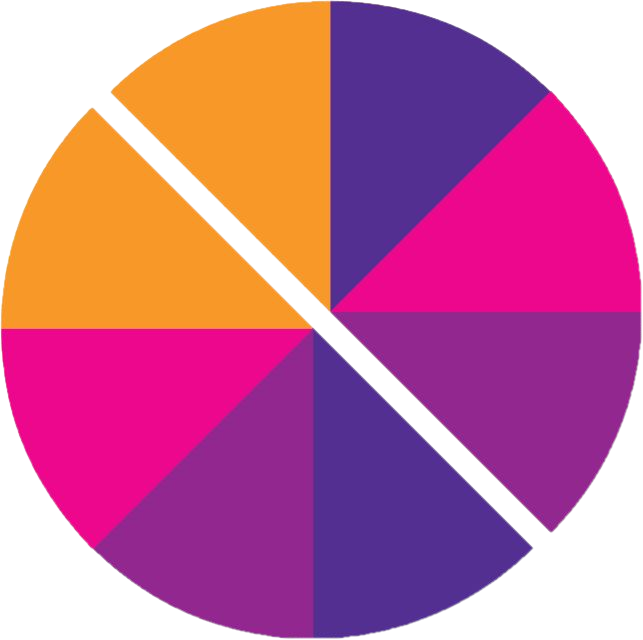The Montessori difference
The Montessori Method of Education is a highly regarded and widely recognised educational philosophy. It is the single largest pedagogy in the world with over 22,000 Montessori schools established throughout 110 countries, with more than 210 centres and schools in Australia.
Maria Montessori (1870 – 1952) believed that the first six years of a child’s life are the most important for forming impressions that will shape that child’s personality and values for life. Following her studies in medicine she used her training in clinical and scientific observation to develop an approach to education that was to become known as the Montessori Method.
Maria Montessori felt that the objective of early childhood education should be to cultivate the child’s own natural desire to learn. This objective is achieved in the Montessori classroom by allowing the excitement of learning by choice and by providing an interesting and stimulating environment that develops curiosity and challenge. Children in a Montessori program are exposed to sequential learning in all of the core curriculum areas of Literacy, Numeracy, Practical Life Skills, Sensorial exploration, Science and Cultural studies.
The environment within a Montessori school caters for the purposeful activity, growth and development of the children. Everything is relative to the child’s size and proportion. Allowing the children independence to manage their needs and their movements enables them to be masters of their own environment. This freedom to work, to make choices and to manage daily challenges develops self-esteem and self-discipline. Older children develop a sense of confidence and responsibility by helping the younger children and this in turn develops social conscience and work values. The Montessori Method is child-Centred but adult guided.
The individual work program is supplemented with group singing, music appreciation and movement, creative art and games and dramatic and constructive play.
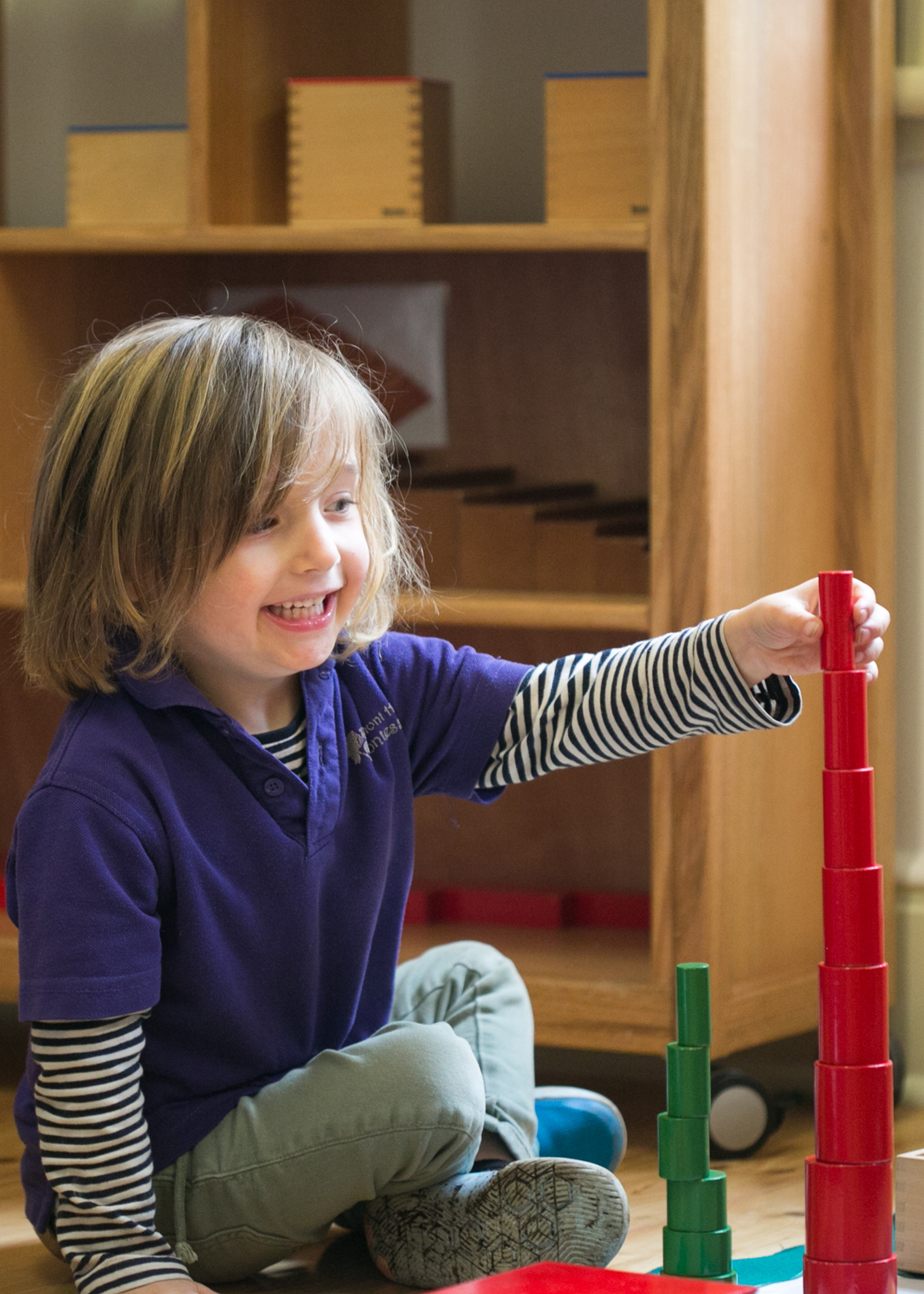
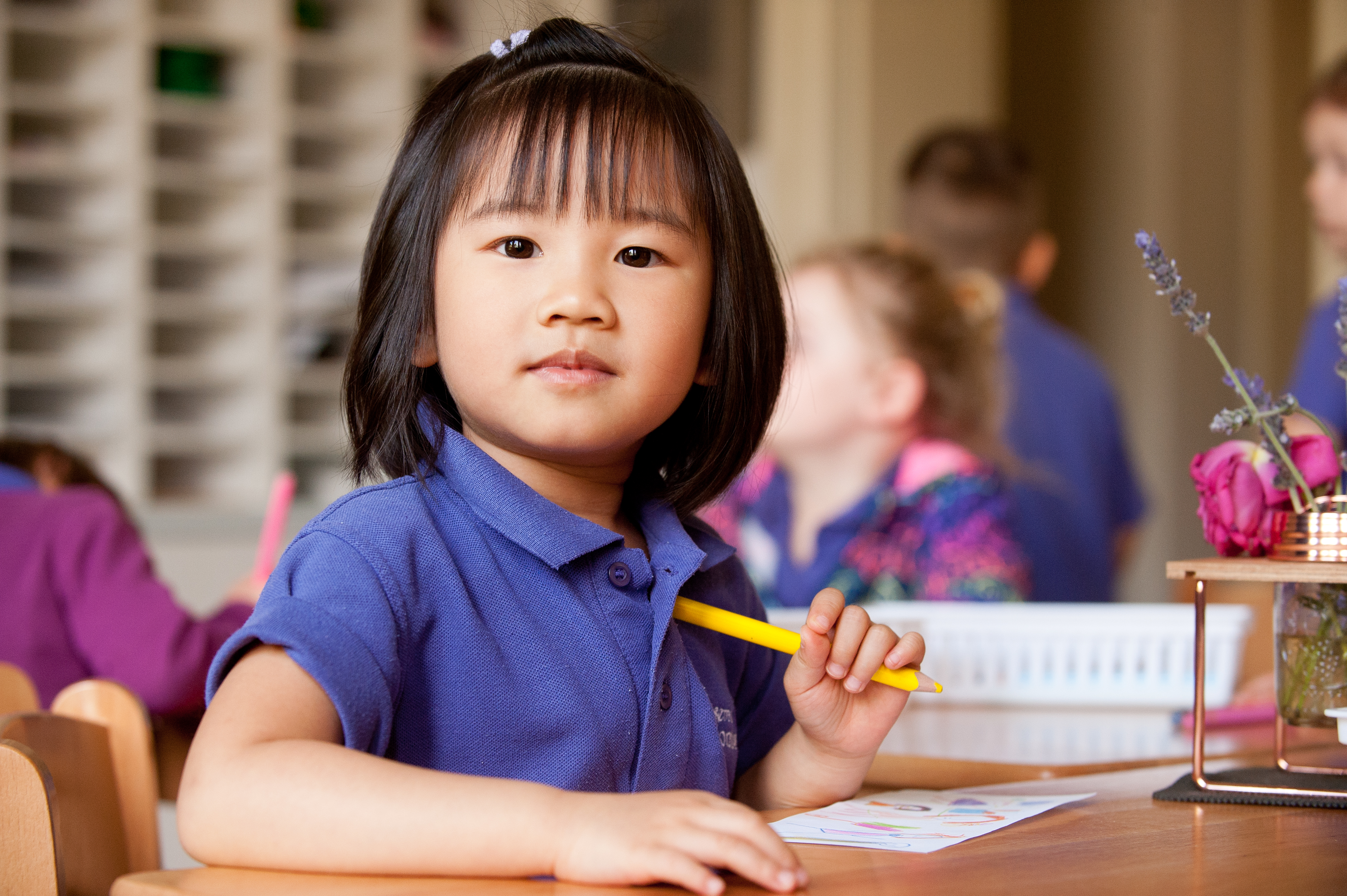
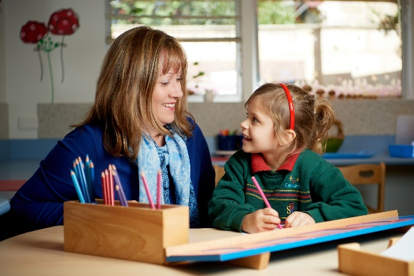
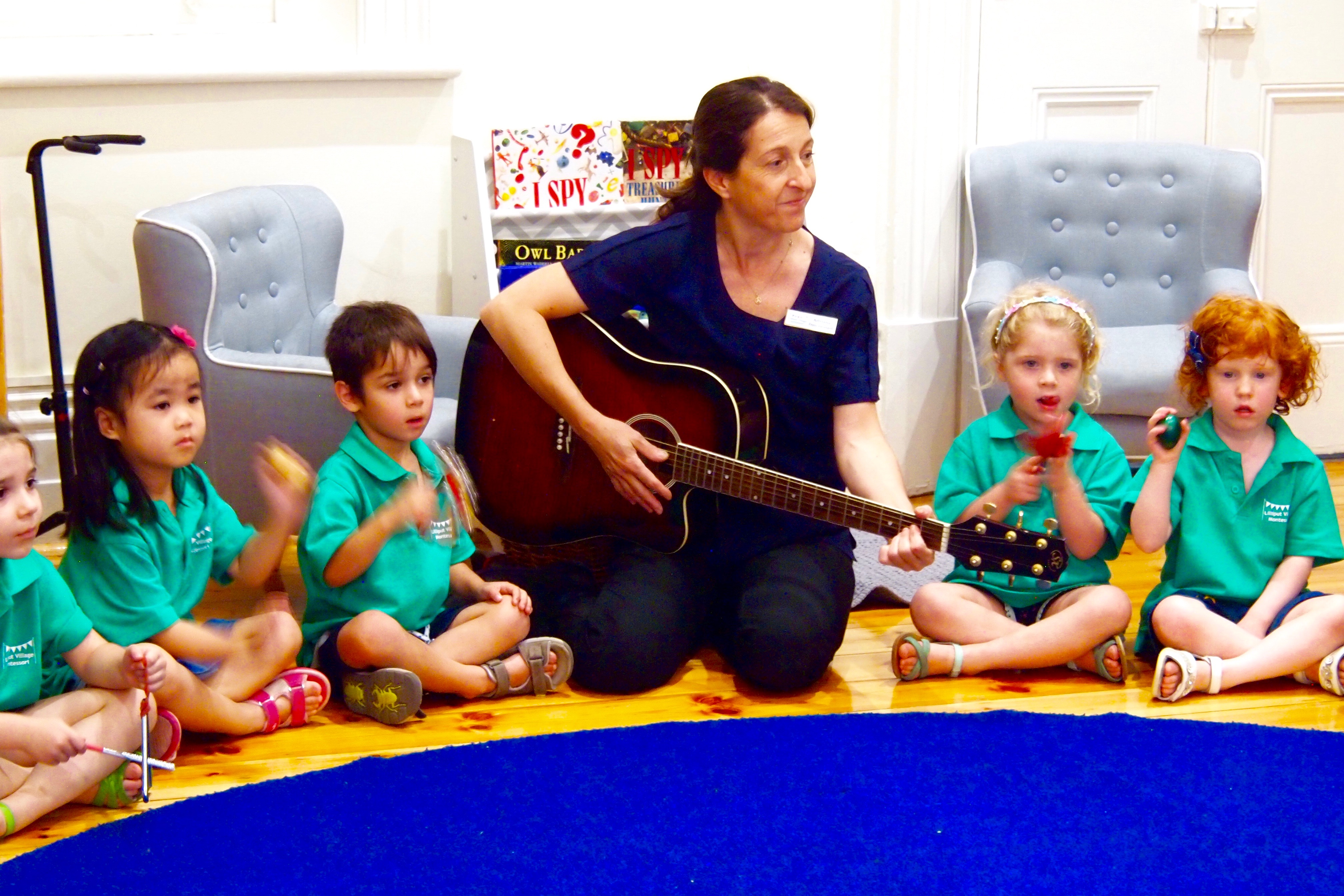
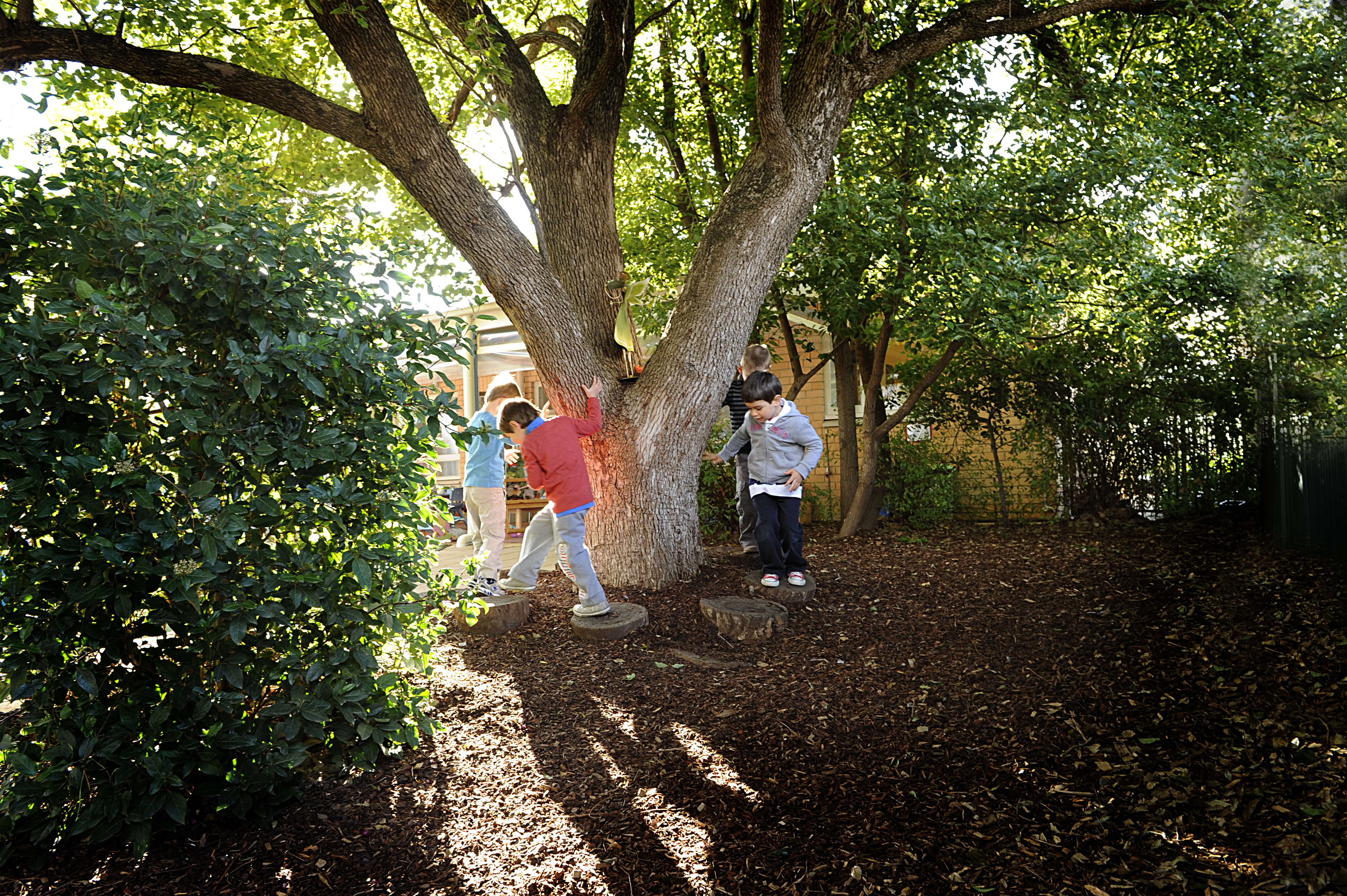
The Montessori VISION
The aim of Montessori education is to help each child to develop:
-
Concentration & engagement,
-
Persistence & problem-solving in completing a task,
-
Self-regulation & organisation,
-
Positive & effective social skills,
-
A strong and lasting desire to learn,
-
Independence & initiative,
-
A connection with the natural world,
-
Creative self-expression.
Our Curriculum
Montessori for the early years (6months – 3 years)
Maria Montessori said that, “The greatness of the human personality begins at the hour of birth”.
We wholeheartedly agree that the very youngest of our children deserve experiences that nurture their unique needs and potentials.
Two of our centres – Cedars and Jescott – offer Nido Playgroups for toddlers and parents to attend together. These sessions allow your child to explore the Montessori environment and also give you, as a parent, support to develop your own environment and strategies at home. You and your child will bond with one another while also building relationships with peers that will last long after your child transitions into the next phase in their learning journey.
For families who need care for their babies and toddlers we are proud to offer our ‘Montessori From The Start’ program at Rosemont House Montessori and Little Oxford Montessori. This specialised program is designed for the unique needs of infants and toddlers in a care community. Children aged from 6 months to 3 years can attend this program. Our model is founded on a deep respect for the needs and rights of the youngest members of our world.
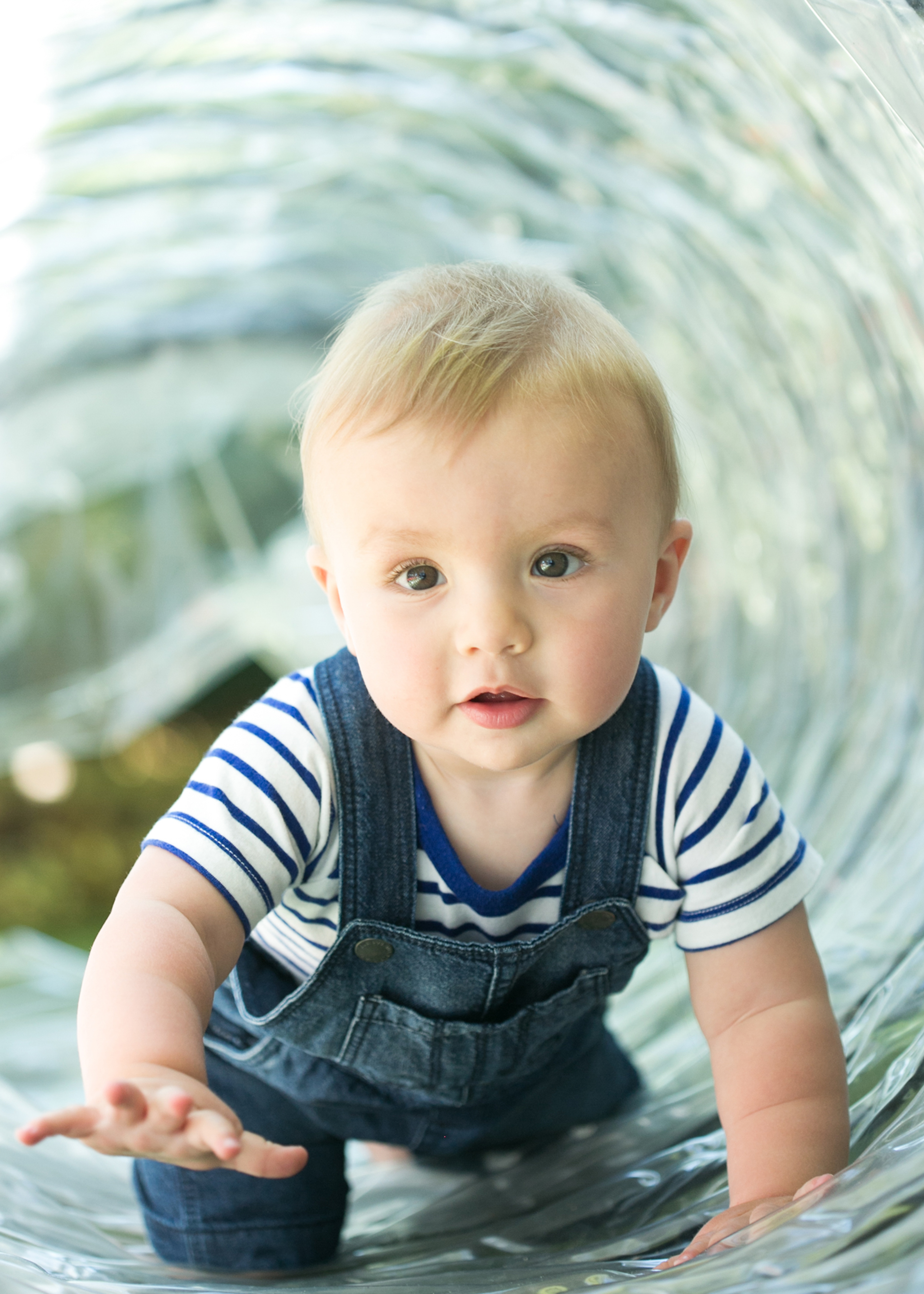
The Montessori Preschool Program (3 – 6 years)
The Montessori pre-school program is a continuum of learning during a child’s early years.
The teaching materials are sequential and build skills to match each child’s individual pattern of development. Optimum learning takes place when a child has progressed through the full three year learning cycle from the beginning of their pre-school experience until school age.
The program can be likened to a jigsaw puzzle with various pieces of the puzzle representing each separate learning experience. In the year prior to a child starting school, the last pieces of the puzzle come together as the final challenges of the Montessori equipment are introduced. Just as the picture would not be complete without the previous pieces of the puzzle, so it is with the Montessori resources that challenge and build upon previous levels of achievement. We encourage all children to complete their full three-year cycle of learning by staying with us until they graduate into Primary School.
Although optimal benefit is gained when a child completes the full 3-year Montessori program, it is not always possible to do so. Every child who spends time at our pre-schools will gain valuable and unique learning experiences irrespective of the length of time the child remains in the Centre. We are confident of providing a positive outcome for all children. We therefore accept children in to our programs at any stage between 3 and 6 years of age, subject to available placement.
The Montessori curriculum provides a continuum of learning from birth to age 18.
It meets all of the requirements of the national Quality Standards and articulates well with the outcomes of the national Early Years Learning Framework.
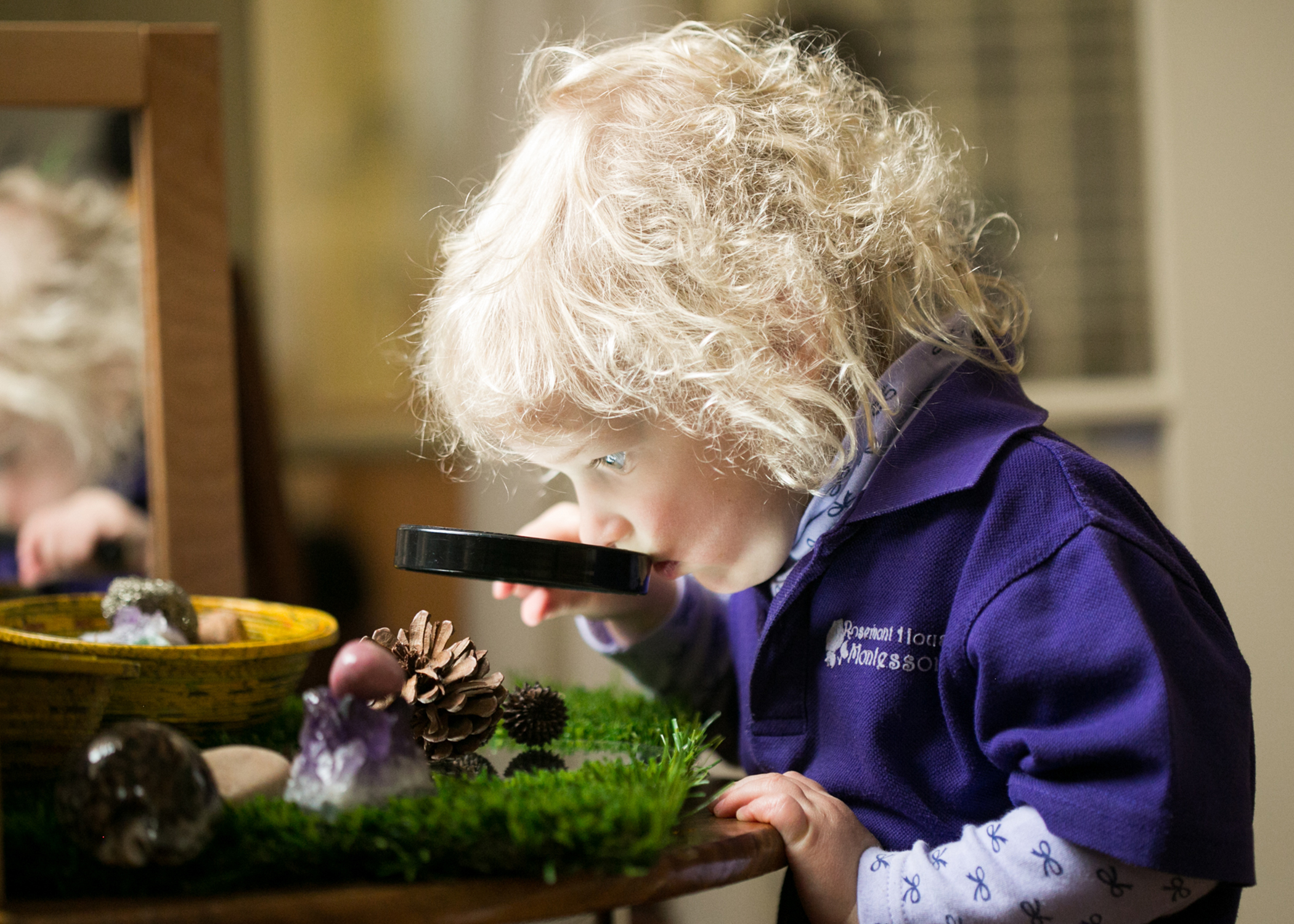
learn more about the montessori curriculum areas
“The greatness of the human personality begins at the hour of birth.”
-Dr Maria Montessori
Several of our Preschools deliver the Infant & Toddler Curriculum through shared parent-child ‘Playgroup’ experiences. This allows for intergenerational learning to occur as the adult and child begin their Montessori journey together. For families who are ready for their baby or toddler to attend Montessori independently we offer our unique ‘From The Start’ programs at Rosemont House Montessori, Lilliput Village Montessori, Little Oxford Montessori and Echoes Montessori.
“The education of even a small child, therefore, does not aim at preparing him for school, but for life.”
-Dr Maria Montessori
The Practical Life curriculum empowers the child with opportunities to contribute meaningfully to a community and to develop the skills necessary to acquire independence. Many of the Practical Life experiences also put the child in touch with nature, as the children learn to plant, cultivate and harvest in the garden or to care for beloved pets.
“The senses, being explorers of the world, open the way to knowledge.”
-Dr Maria Montessori
The senses are the tools with which the child explores, absorbs and comes to understand the world. The Sensorial curriculum allows the child to sharpen and refine their senses in order to absorb more detailed, nuanced impressions. The Sensorial lessons also introduce the concepts and language necessary for the child to catalogue and categorise their experiences, making it easier for them to recall, comprehend and share their understanding of the world.
“Our aim is not merely to make the child understand, and still less to force him to memorize, but so to touch his imagination as to enthuse him to his innermost core.”
-Dr Maria Montessori
The magic of mathematics is revealed by the Montessori materials that highlight the power of patterns and the dexterity of the decimal system. The use of physical, manipulative materials ensures that each child can hold the answer to complex equations in the palm of his or her hand, leading to mastery of fundamental numeracy skills and self-confidence in approaching challenges.
“The secret of good teaching is to regard the child’s intelligence as a fertile field in which seeds may be sown, to grow under the heat of flaming imagination.”
-Dr Maria Montessori
Maria Montessori described her first class of children as experiencing a “spontaneous explosion” into language. This phenomenon is repeated time and again in our Montessori classrooms, as we provide children with the tools and experiences they need to develop a true love of language.
“The things he sees are not just remembered, they form a part of the soul.”
-Dr Maria Montessori
The Montessori Cultural Curriculum connects the child to the wonders of the world through subjects as diverse as zoology, botany, geography, history, and art. The Cultural Curriculum is constantly expanding and adapting to suit the dynamics of the specific learning context and the interests and imagination of the child!
A HARMONIOUS PARTNERSHIP
The Montessori curriculum perfectly reflects the principles, practices and outcomes of the Early Years Learning Framework.
We are proud that the EYLF reinforces the values of our Montessori pedagogy.
To learn more about the interconnections between Montessori and the EYLF please download the ‘Montessori Early Years Program’ document developed by our own Barbara Langford on behalf of the Montessori Australia Foundation.
Testimonials
What Parents are Saying
As a parent, I have found Cedars Montessori to be a supportive, educational, caring and safe environment for children to learn and thrive in.
It is very evident the staff of Cedars care for the children. They clearly have a strong passion for what they do.
“I like to do activities with the beads… It feels good; you use your hands and you use your brain.” (Aria)
I think Miss Aria summed up Montessori quite well for a 4 year old! Your passion and dedication to your craft can be seen by everyone who attends/spends time in your beautiful environment.” (Anna)
“Jescott Montessori more than exceeds in our eyes…..
We love it, still do, we miss you beautiful ladies everyday and every day that my children once attended was an amazingly new adventurous day where you all nurtured my children like your own. You are one in a million.”
Students
caring EDUCATORS
Centres
Years Established
Get In Touch
Cedars Montessori - Unley
cedars@samontessori.com.au
Chancery Lane Montessori - Adelaide CBD -
chancerylane@samontessori.com.au
Echoes Montessori - Modbury
echoes@samontessori.com.au
Jescott Montessori - Magill
jescott@samontessori.com.au
Lilliput Village Montessori - Maylands
lilliput@samontessori.com.au
Little Oxford Montessori - Unley
oxford@samontessori.com.au
Rosemont House Montessori - Norwood
rosemont@samontessori.com.au
Montessori Child is our preferred supplier for educational resources.
Our website is updated regularly and we endeavour to ensure it reflects current and accurate information - however, all details displayed are subject to change. It is important that you contact a centre directly to confirm up to date and correct details.
We would like to acknowledge this land upon which we live and learn as the traditional lands of the Kaurna people and we respect their spiritual relationship with Country. We also acknowledge the Kaurna people as the custodians of the greater Adelaide region and that their cultural and heritage beliefs are still as important to the living Kaurna people today and we give our respect to Elders.
